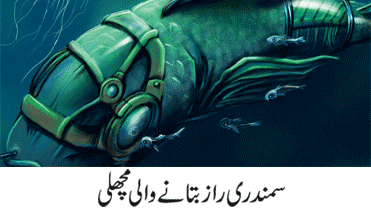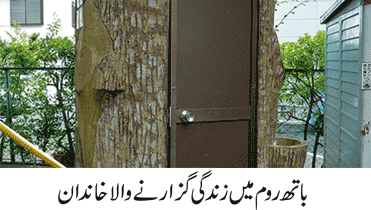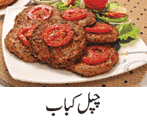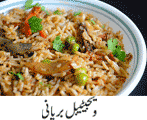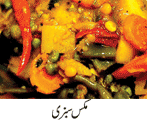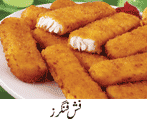Hadith About Alcoholشراب کے بارے میں احادیث
فہرست
Hadith About Alcohol is Prohibited in Islam 1. شراب حرام ہے
A'isha reported: Allah's Messenger ( صلی اللہ علیہ وسلم ) was asked about Bit'i, whereupon he said: Every drink that causes intoxication is forbidden.
Book: Sahih Muslim, Chapter: Drink, Hadees No. 5211Narrated Ibn 'Umar: That the Messenger of Allah (ﷺ) said: Every intoxicant is Khamr, and every intoxicant is unlawful. Whoever drinks Khamr in this world, and dies continuing it, he will not drink it in the Hereafter. He said: There are narrations on this topic from Abu Hurairah, Abu Sa'eed, 'Abdullah bin 'Amr, 'Ubadah, Abu Malik Al-Ash'ari, and Ibn 'Abbas. [Abu 'Eisa said:] The Hadith of Ibn 'Umar is a Hasan Sahih Hadith. It has been reported through other routes from Nafi', from Ibn 'Umar, from the Prophet (ﷺ). Malik bin Anas reported it from Nafi' from Ibn 'Umar in Mawquf - not Marfu' form.
Book: Jamia Tirmazi, Chapter: Drinks, Hadees No. 1861امام مالک نے ابن شہاب ( زہری ) سے انھوں نے ابو سلمہ بن عبد الرحمٰن سے انھوں نے حضرت عائشہ رضی اللہ تعالیٰ عنہا سے روایت کی ، کہا : رسول اللہ صلی اللہ علیہ وسلم سے شہد کی بنی ہو ئی شراب کے متعلق سوال کیا گیا آپ نے فرمایا : " ہر مشروب جو نشہ آور ہو وہ حرام ہے۔ "
Book: Sahih Muslim, Chapter: Drink, Hadees No. 5211عبداللہ بن عمر رضی الله عنہما کہتے ہیں کہ رسول اللہ صلی اللہ علیہ وسلم نے فرمایا: ”ہر نشہ آور چیز شراب ہے اور ہر نشہ آور چیز حرام ہے، جس نے دنیا میں شراب پی اور وہ اس حال میں مر گیا کہ وہ اس کا عادی تھا، تو وہ آخرت میں اسے نہیں پیئے گا ۱؎۔ امام ترمذی کہتے ہیں: ۱- ابن عمر رضی الله عنہما کی حدیث حسن صحیح ہے، ۲- یہ حدیث کئی سندوں سے نافع سے آئی ہے، جسے نافع، ابن عمر سے، ابن عمر نبی اکرم صلی اللہ علیہ وسلم سے روایت کرتے ہیں، ۳- مالک بن انس نے اس حدیث کو نافع کے واسطہ سے ابن عمر سے موقوفا روایت کی ہے، اسے مرفوع نہیں کیا ہے، ۴- اس باب میں ابوہریرہ، ابو سعید خدری، عبداللہ بن عمرو بن العاص، ابن عباس، عبادہ اور ابو مالک اشعری رضی الله عنہم سے بھی احادیث آئی ہیں۔
Book: Jamia Tirmazi, Chapter: Drinks, Hadees No. 1861حَدَّثَنَا يَحْيَى بْنُ يَحْيَى قَالَ قَرَأْتُ عَلَى مَالِكٍ عَنْ ابْنِ شِهَابٍ عَنْ أَبِي سَلَمَةَ بْنِ عَبْدِ الرَّحْمَنِ عَنْ عَائِشَةَ قَالَتْ سُئِلَ رَسُولُ اللَّهِ صَلَّى اللَّهُ عَلَيْهِ وَسَلَّمَ عَنْ الْبِتْعِ فَقَالَ كُلُّ شَرَابٍ أَسْكَرَ فَهُوَ حَرَامٌ
Book: Sahih Muslim, Chapter: Drink, Hadees No. 5211حَدَّثَنَا أَبُو زَكَرِيَّا يَحْيَى بْنُ دُرُسْتَ الْبَصْرِيُّ، حَدَّثَنَا حَمَّادُ بْنُ زَيْدٍ، عَنْ أَيُّوبَ، عَنْ نَافِعٍ، عَنْ ابْنِ عُمَرَ، قَالَ: قَالَ رَسُولُ اللَّهِ صَلَّى اللَّهُ عَلَيْهِ وَسَلَّمَ: كُلُّ مُسْكِرٍ خَمْرٌ، وَكُلُّ مُسْكِرٍ حَرَامٌ، وَمَنْ شَرِبَ الْخَمْرَ فِي الدُّنْيَا فَمَاتَ وَهُوَ يُدْمِنُهَا لَمْ يَشْرَبْهَا فِي الْآخِرَةِ ، قَالَ: وَفِي الْبَاب عَنْ أَبِي هُرَيْرَةَ، وَأَبِي سَعِيدٍ، وَعَبْدِ اللَّهِ بْنِ عَمْرٍو، وَابْنِ عَبَّاسٍ، وَعُبَادَةَ، وَأَبِي مَالِكٍ الْأَشْعَرِيِّ، قَالَ أَبُو عِيسَى: حَدِيثُ ابْنِ عُمَرَ حَدِيثٌ حَسَنٌ صَحِيحٌ وَقَدْ رُوِيَ مِنْ غَيْرِ وَجْهٍ عَنْ نَافِعٍ، عَنْ ابْنِ عُمَرَ، عَنِ النَّبِيِّ صَلَّى اللَّهُ عَلَيْهِ وَسَلَّمَ، وَرَوَاهُ مَالِكُ بْنُ أَنَسٍ، عَنْ نَافِعٍ، عَنْ ابْنِ عُمَرَ مَوْقُوفًا فَلَمْ يَرْفَعْهُ.
Book: Jamia Tirmazi, Chapter: Drinks, Hadees No. 1861Hadith About Punishment For Drinking Alcohol in Islam 2. شراب پینے کی سزا
Narrated Abu Sa'eed Al-Khudri: That the Messenger of Allah (ﷺ) implemented the penalty by beating forty times, with two shoes - Mis'ar (one of the narrators) said: It think it was for wine.
Book: Jamia Tirmazi, Chapter: Legal Punishments (Al-Hudud), Hadees No. 1442Narrated Anas: That a man who had drunk wine was brought to the Prophet (ﷺ), so he beat him about forty times with two stalks of a palm tree. So Abu Bakr did similarly, and by the time 'Umar became Khalifah he sought council from the people. And 'Abdur-Rahman bin 'Awf said: 'I see that the lightest penalty is eighty lashes,' so 'Umar ordered that.
Book: Jamia Tirmazi, Chapter: Legal Punishments (Al-Hudud), Hadees No. 1443ابو سعید خدری رضی الله عنہ سے روایت ہے کہ رسول اللہ صلی اللہ علیہ وسلم نے حد قائم کرتے ہوئے چالیس جوتیوں کی سزا دی، مسعر راوی کہتے ہیں: میرا خیال ہے شراب کی حد میں ( آپ نے چالیس جوتیوں کی سزا دی )۔ امام ترمذی کہتے ہیں: ۱- ابوسعید رضی الله عنہ کی حدیث حسن ہے، ۲- اس باب میں علی، عبدالرحمٰن بن ازہر، ابوہریرہ، سائب، ابن عباس اور عقبہ بن حارث رضی الله عنہم سے بھی احادیث آئی ہیں۔
Book: Jamia Tirmazi, Chapter: Legal Punishments (Al-Hudud), Hadees No. 1442 انس رضی الله عنہ سے روایت ہے کہ نبی اکرم صلی اللہ علیہ وسلم کے پاس ایک ایسا آدمی لایا گیا جس نے شراب پی تھی، آپ نے اسے کھجور کی دو چھڑیوں سے چالیس کے قریب مارا، ابوبکر رضی الله عنہ نے بھی ( اپنے دور خلافت میں ) ایسا ہی کیا، پھر جب عمر رضی الله عنہ خلیفہ ہوئے تو انہوں نے اس سلسلے میں لوگوں سے مشورہ کیا، چنانچہ عبدالرحمٰن بن عوف نے کہا: حدوں میں سب سے ہلکی حد اسی کوڑے ہیں، چنانچہ عمر نے اسی کا حکم دیا۔ امام ترمذی کہتے ہیں: ۱- انس کی حدیث حسن صحیح ہے، ۲- صحابہ میں سے اہل علم اور دوسرے لوگوں کا اسی پر عمل ہے کہ شرابی کی حد اسی کوڑے ہیں ۱؎۔
Book: Jamia Tirmazi, Chapter: Legal Punishments (Al-Hudud), Hadees No. 1443حَدَّثَنَا سُفْيَانُ بْنُ وَكِيعٍ، حَدَّثَنَا أَبِي، عَنْ مِسْعَرٍ، عَنْ زَيْدٍ الْعَمِّيِّ، عَنْ أَبِي الصِّدِّيقِ النَّاجِيِّ، عَنْ أَبِي سَعِيدٍ الْخُدْرِيِّ، أَنَّ رَسُولَ اللَّهِ صَلَّى اللَّهُ عَلَيْهِ وَسَلَّمَ ضَرَبَ الْحَدَّ بِنَعْلَيْنِ أَرْبَعِينَ . قَالَ مِسْعَرٌ: أَظُنُّهُ فِي الْخَمْرِ، قَالَ: وَفِي الْبَاب، عَنْ عَلِيٍّ، وَعَبْدِ الرَّحْمَنِ بْنِ أَزْهَرَ، وَأَبِي هُرَيْرَةَ، وَالسَّائِبِ، وَابْنِ عَبَّاسٍ، وَعُقْبَةَ بْنِ الْحَارِثِ. قَالَ أَبُو عِيسَى: حَدِيثُ أَبِي سَعِيدٍ حَدِيثٌ حَسَنٌ، وَأَبُو الصِّدِّيقِ النَّاجِيُّ اسْمُهُ: بَكْرُ بْنُ عَمْرٍو، وَيُقَالُ: بَكْرُ بْنُ قَيْسٍ.
Book: Jamia Tirmazi, Chapter: Legal Punishments (Al-Hudud), Hadees No. 1442حَدَّثَنَا مُحَمَّدُ بْنُ بَشَّارٍ، حَدَّثَنَا مُحَمَّدُ بْنُ جَعْفَرٍ، حَدَّثَنَا شُعْبَةُ، قَال: سَمِعْتُ قَتَادَةَ يُحَدِّثُ، عَنْ أَنَسٍ، عَنِ النَّبِيِّ صَلَّى اللَّهُ عَلَيْهِ وَسَلَّمَ: أَنَّهُ أُتِيَ بِرَجُلٍ قَدْ شَرِبَ الْخَمْرَ، فَضَرَبَهُ بِجَرِيدَتَيْنِ نَحْوَ الْأَرْبَعِينَ ، وَفَعَلَهُ أَبُو بَكْرٍ، فَلَمَّا كَانَ عُمَرُ، اسْتَشَارَ النَّاسَ، فَقَالَ عَبْدُ الرَّحْمَنِ بْنُ عَوْفٍ: كَأَخَفِّ الْحُدُودِ ثَمَانِينَ، فَأَمَرَ بِهِ عُمَرُ، قَالَ أَبُو عِيسَى: حَدِيثُ أَنَسٍ حَدِيثٌ حَسَنٌ صَحِيحٌ، وَالْعَمَلُ عَلَى هَذَا عِنْدَ أَهْلِ الْعِلْمِ مِنْ أَصْحَابِ النَّبِيِّ صَلَّى اللَّهُ عَلَيْهِ وَسَلَّمَ وَغَيْرِهِمْ، أَنَّ حَدَّ السَّكْرَانِ ثَمَانُونَ.
Book: Jamia Tirmazi, Chapter: Legal Punishments (Al-Hudud), Hadees No. 1443Salat is not Accepted from Alcohol Drinker For 40 days 3. شراب پینے والے کی نماز 40 دن تک قبول نہیں ہوتی
Narrated 'Abdullah bin 'Umar: That the Messenger of Allah (ﷺ) said: Whoever drinks Khamr, Salat is not accepted from him for forty days. If he repents, then Allah will accept his repentance. It he returns to it, then Allah will not accept his Salat for forty days. If he repents, then Allah will accept his repentance. If he returns to it, then Allah will not accepts his Salat for forty days. If he repents, then Allah will accept his repentance. If he returns to it a fourth time, Allah will not accept his Salat for forty days, and if he were to repent, Allah would not accept his repentance, and he will be given to drink from the river of Al-Khabal. They said: O Aby 'Abdur-Rahman! What is the river of Al-Khabal? He said: A river of the pus from the inhabitants of the Fire. [Abu 'Eisa said:] This Hadith is Hasan. Similar to this has been reported from 'Abdullah bin 'Amr and Ibn 'Abbas from the Prophet (ﷺ).
Book: Jamia Tirmazi, Chapter: Drinks, Hadees No. 1862عبداللہ بن عمر رضی الله عنہما کہتے ہیں کہ رسول اللہ صلی اللہ علیہ وسلم نے فرمایا: ”جس نے شراب پی اللہ تعالیٰ اس کی چالیس دن کی نماز قبول نہیں کرے گا، اگر وہ توبہ کر لے تو اللہ اس کی توبہ قبول کرے گا، اگر اس نے دوبارہ شراب پی تو اللہ تعالیٰ اس کی چالیس دن کی نماز قبول نہیں کرے گا، اگر وہ توبہ کر لے تو اللہ اس کی توبہ قبول کرے گا، اگر اس نے پھر شراب پی تو اللہ تعالیٰ اس کی چالیس دن کی نماز قبول نہیں کرے گا، اگر وہ توبہ کر لے تو اللہ اس کی توبہ قبول کرے گا، اگر اس نے چوتھی بار بھی شراب پی تو اللہ تعالیٰ اس کی چالیس دن کی نماز قبول نہیں کرے گا اور اگر وہ توبہ کرے تو اس کی توبہ بھی قبول نہیں کرے گا، اور اس کو نہر خبال سے پلائے گا، پوچھا گیا، ابوعبدالرحمٰن! نہر خبال کیا ہے؟ انہوں نے کہا: جہنمیوں کے پیپ کی ایک نہر ہے“۔ امام ترمذی کہتے ہیں: ۱- یہ حدیث حسن ہے، ۲- عبداللہ بن عمرو بن العاص اور ابن عباس کے واسطہ سے بھی نبی اکرم صلی اللہ علیہ وسلم سے اسی جیسی حدیث مروی ہے۔
Book: Jamia Tirmazi, Chapter: Drinks, Hadees No. 1862حَدَّثَنَا قُتَيْبَةُ، حَدَّثَنَا جَرِيرُ بْنُ عَبْدِ الْحَمِيدِ، عَنْ عَطَاءِ بْنِ السَّائِبِ، عَنْ عَبْدِ اللَّهِ بْنِ عُبَيْدِ بْنِ عُمَيْرٍ، عَنْ أَبِيهِ، قَالَ: قَالَ عَبْدُ اللَّهِ بْنُ عُمَرَ، قَالَ رَسُولُ اللَّهِ صَلَّى اللَّهُ عَلَيْهِ وَسَلَّمَ: مَنْ شَرِبَ الْخَمْرَ لَمْ يَقْبَلِ اللَّهُ لَهُ صَلَاةً أَرْبَعِينَ صَبَاحًا فَإِنْ تَابَ تَابَ اللَّهُ عَلَيْهِ فَإِنْ عَادَ لَمْ يَقْبَلِ اللَّهُ لَهُ صَلَاةً أَرْبَعِينَ صَبَاحًا فَإِنْ تَابَ تَابَ اللَّهُ عَلَيْهِ فَإِنْ عَادَ لَمْ يَقْبَلِ اللَّهُ لَهُ صَلَاةً أَرْبَعِينَ صَبَاحًا فَإِنْ تَابَ تَابَ اللَّهُ عَلَيْهِ فَإِنْ عَادَ الرَّابِعَةَ لَمْ يَقْبَلِ اللَّهُ لَهُ صَلَاةً أَرْبَعِينَ صَبَاحًا فَإِنْ تَابَ لَمْ يَتُبْ اللَّهُ عَلَيْهِ وَسَقَاهُ مِنْ نَهْرِ الْخَبَالِ، قِيلَ: يَا أَبَا عَبْدِ الرَّحْمَنِ وَمَا نَهْرُ الْخَبَالِ ؟، قَالَ: نَهْرٌ مِنْ صَدِيدِ أَهْلِ النَّارِ ، قَالَ أَبُو عِيسَى: هَذَا حَدِيثٌ حَسَنٌ وَقَدْ رُوِيَ نَحْوُ هَذَا عَنْ عَبْدِ اللَّهِ بْنِ عَمْرٍو، وَابْنِ عَبَّاسٍ، عَنِ النَّبِيِّ صَلَّى اللَّهُ عَلَيْهِ وَسَلَّمَ.
Book: Jamia Tirmazi, Chapter: Drinks, Hadees No. 1862While science has only recently revealed that the use of alcohol is injurious to health, Islam prohibited its consumption more than fourteen centuries ago.Let’s have a healthy discussion the top in the light of the Glorious Quran and Hadith about Alcohol.
Islam prohibits any kind of intoxicants, especially alcoholic beverages. Many verses of the Noble Quran, revealed at different times, declare the consumption of alcohol a great sin. Similarly, the Holy Scripture also makes it clear that there is greater harm in drinking wine and gambling than the benefit. So, a wise man will always try to avoid doing something that has a greater harm than benefit.
Quranic Verse about Alcohol:The Noble Quran prohibits the consumption of alcoholic beverages on more than one occasions. Here is verse 219 of Chapter 2 (Surah Al-Baqarah) which clearly conveys Allah’s decree.
يَسْأَلُونَكَ عَنِ الْخَمْرِ وَالْمَيْسِرِ ۖ قُلْ فِيهِمَا إِثْمٌ كَبِيرٌ وَمَنَافِعُ لِلنَّاسِ وَإِثْمُهُمَا أَكْبَرُ مِن نَّفْعِهِمَا ۗ وَيَسْأَلُونَكَ مَاذَا يُنفِقُونَ قُلِ الْعَفْوَ ۗ كَذَٰلِكَ يُبَيِّنُ اللَّهُ لَكُمُ الْآيَاتِ لَعَلَّكُمْ تَتَفَكَّرُونَ (2:219)
Translation: “They ask you about wine and gambling. Say, "In them is great sin and [yet, some] benefit for people. But their sin is greater than their benefit." And they ask you what they should spend. Say, "The excess [beyond needs]." Thus, Allah makes clear to you the verses [of revelation] that you might give thought.”
On another occasion, i.e. verse 43 of chapter 4 (Surah An-Nisa), Allah Almighty commands the believers, “O you who have believed, do not approach prayer while you are intoxicated until you know what you are saying or in a state of Janabah, except those passing through [a place of prayer], until you have washed [your whole body].”





